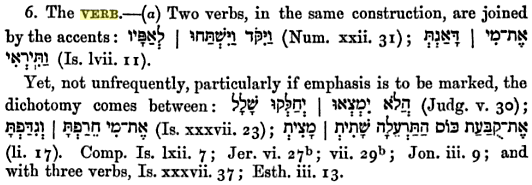In our Mikraos Gedolos, we have the following on the first pasuk in Ekev, a mercha tipcha:
The mercha joins to the next word, the tipcha separates. So it is: ושמרתם ועשיתם || אתם
That is, a tipcha munach. The tipcha separates from the next word while the munach joins. So it is: ושמרתם || ועשיתם אתם.
Chelek HaDikduk makes note of this difference in Teimani manuscripts:
Does either make sense? After all, in “and you shall keep and you shall perform them”, the word “them” is the object of both “you shall keep” and “you shall perform”. If so, shouldn’t “and you shall keep and perform” be one unit?
William Wickes, page 59 of Two Treatises on the Accentuation of the Old Testament, in the chapter entitled Syntactic Dichotomy, writes as follows:
This would appear to be the case under consideration. And so, the regular construction would be as in our Mikraos Gedolos. Yet the Teimani alternative is possible, and not infrequent, and indeed, often motivated by a consideration (emphasis).
Under the rule of lectio difficilior, I would assume that the seemingly more difficult word is the original, since a scribe will be more likely to change it in the direction of the easier reading. So that would favor the Teimani reading as more original.

No comments:
Post a Comment